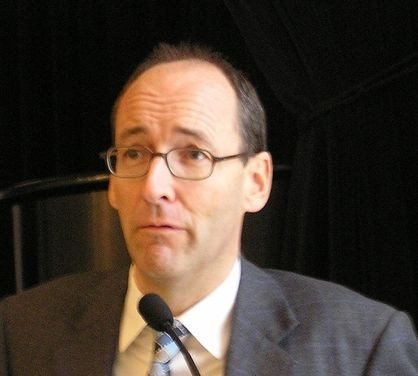
Our last meeting of the year at the Financial Services Club featured Andrew Tyrie, Head of the Treasury Select Committee.

The meeting was held in partnership with the Industry & Parliament Trust, and a good night was had by all.
In a packed room, Andrew talked about the government’s challenges and his own varied agenda.

For example, just in the last few days he had witnessed:
- European Commissioner for the Internal Markets Michel Barnier get himself into a tangle (Bankers' threat to quit City 'blackmail');
- The FSA capitulate to pressure to publish their ‘secret’ report on the failure of the Royal Bank of Scotland (FSA caves in to RBS pressure);
- A new deal with the Irish government over their bank structures in order to clear a £3.25 billion loan from the UK (Deal on banks part of loan conditions for UK money); and
- The founder of Metro Bank, Vernon Hill, telling him that the state of the UK retail banking sector is so uncompetitive that he is going to mop up (Standard of UK high street banks is shocking).
Just an average few days for a Treasury Select Committee Chairman, or maybe not.
As Andrew made clear, he has little time for wishy-washy mish-mash.
By way of example, he was not impressed with Michel Barnier, and thinks it strange that someone who has no experience of financial services has the regulation of the UK’s most important industry in his hands.
Equally, the FSA’s resistance to publishing their insights into the failure of RBS was a mistake, and for Lord Turner to only publish the report with the permission of Stephen Hester is a sign of weakness.
Andrew then went on to talk around the Parliamentary Houses a little about how getting the country straight hasn’t even started yet and that their biggest challenge will be trust in their ability to reform. Like many of our generation, Andrew grew up as a Thatcherite youth, in his case a Conservative one, and so he claimed that you may not have liked Thatcher’s reforms but did you trust her to get them through? Yes.
The challenge today is that after the Iraq War and the Parliamentary expenses scandal, does anyone trust the politicians today to reform effectively? No.
This is their biggest challenge and, funnily enough, the number of times I hear about ‘rebuilding trust’ in banking, it’s common to both politics and finance. There again, politics and finance are near enough the same thing these days, aren’t they?
Further to this general introduction, Andrew went on to talk about regulatory reform in the finance sector and made clear that, although banker bashing is popular amongst the public and the media, it wasn’t just banks that failed and it wasn’t just banks that cause this crisis.
Everyone had a hand in the crisis from the Prime Minister and Chancellor to the Governor of the Bank of England to the Financial Services Authority (FSA), Rating Agencies, Auditors, the Boards of Banks and their Chief Executives.
Even the consumers who over-mortgaged and the businesses that over-borrowed are to blame for some part of this crisis.
[Note: there was an audible sense of disagreement amongst some of the audience when this comment was made]
What Andrew was really getting at is that all of the parties involved in organising, regulating, managing and running the financial system overlooked the growth of risk on the balance sheet of the banks, and this is where future regulations need to focus.
On this note, he did not think the Dodd-Frank regulation addressed the issues above. Instead it merely presents the problem and leaves it to the regulators to sort it out.
Funnily enough, the solution here is expected to come out of the Independent Commission on Banking (ICB). However, after my attendance the night before at their hearing, I don’t think so.
All in all, I agreed with much of what Andrew covered and said.
He’s a realist.
He does not believe that regulation will solve anything – has Basel ever achieved anything? – and that the more regulation is put into place, the more it costs the customers to fund its implementation.
This is all true.
Equally, the business cycle of finance is endemic, and so there will be another crash in the future. In fact, many of us think it’s already bubbling away in China.
So what is the answer?
No regulations at all?
Or 100% regulations written for every possible nuance and avenue of running a bank?
The former is the Wild West and the latter is Boa Constriction.
The balance has to be somewhere in the middle, and that’s what the Treasury Select Committee, the Independent Commission on Banking, the Chancellor, the Bank and the FSA are all trying to achieve.
Mind you, isn’t that what they were trying to achieve before this crisis hit?
Chris M Skinner
Chris Skinner is best known as an independent commentator on the financial markets through his blog, TheFinanser.com, as author of the bestselling book Digital Bank, and Chair of the European networking forum the Financial Services Club. He has been voted one of the most influential people in banking by The Financial Brand (as well as one of the best blogs), a FinTech Titan (Next Bank), one of the Fintech Leaders you need to follow (City AM, Deluxe and Jax Finance), as well as one of the Top 40 most influential people in financial technology by the Wall Street Journal's Financial News. To learn more click here...

